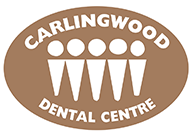Since everything you eat comes in contact with your mouth, the diet you consume on a daily basis has a drastic impact on the health of your teeth and your entire body. That’s why it’s essential to consume a balanced and wholesome diet to help keep your teeth and gums in good shape. It’s also important because, without certain nutrients, your tooth enamel can weaken, bacteria can thrive, and it can be more challenging for your gums to ward off infection. Read on to learn more about how a healthy diet impacts your teeth and what to avoid and eat more of.
Avoid Sticky, Sweet, Acidic Foods
If you have a sweet tooth, this can be bad news for your gums and enamel. Sweet and sticky or acidic foods are very harmful to your teeth. These items can easily get lodged in between your teeth and cause cavities to develop. Bacteria also thrive off of sugar, so it’s important to really limit your intake of sugary or acidic food and drink such as cookies, caramels, cake, pop, fruit juices and anything high in sugar.
Avoid Chronic Dieting
Dieting can also be detrimental for your oral health, especially if you’re following one that limits your consumption of carbs. This can cause deficiencies in calcium and B12, which are vital for developing strong and healthy bones like your jaw bone. It can also increase the risk of cavities and make saliva more acidic, which can lead to bad breath.
So what do you need more of for healthy teeth and gums?
Whole foods with carbs, lean protein and vegetables should be a part of your everyday diet. Here are some items to eat more of:
Leafy greens
Dark leafy green vegetables like spinach and kale are packed with minerals and vitamins that promote better oral health. These foods are rich in calcium, which is important for strong enamel. They’re also rich in vitamin B and folic acid, both of which are necessary for keeping gum tissue healthy while preventing gum disease.
Almonds
Almonds are another excellent source of calcium because they’re low in sugar. So they can also promote stronger tooth enamel and prevent cavities. But be mindful of how much you consume since these are also high in fat. We recommend eating no more than a quarter cup of almonds per day.
Salmon
Fatty fish like salmon contain omega-3 fatty acids that are an essential component of maintaining optimal health for your body and mouth. Omega-3s help to reduce inflammation, which is needed to prevent disease along the gums. Other good sources of this include olives, olive oil, avocado, and certain nuts like almonds.
Drink More Water
Aside from what you eat, it’s also equally important to be mindful of what you drink. Try to swap out any sugary, acidic drinks, including wine, coffee, and tea for water instead. Water helps to flush out food particles and sugar while reducing the bacteria in your mouth.
So, how does a healthy diet impact your teeth? Wholesome foods like nuts, fatty fish, vegetables and fruit deliver the essential nutrients and vitamins that are needed to ward off bacteria, disease, and infections to keep your oral health in check. To learn more about how diet relates to your oral health, our team will be glad to answer your questions during your next visit. Contact us at Carlingwood Dental to schedule your next appointment today!


